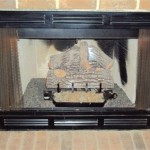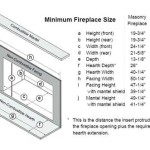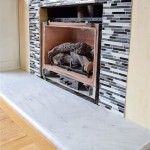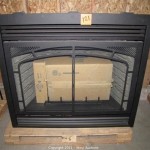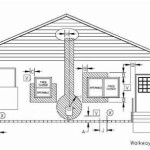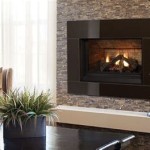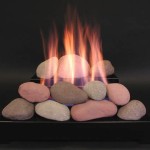The Enduring Appeal of Old Fireplace Covers
Fireplace covers, also known as fireplace screens or fire screens, have served a dual purpose for centuries: providing safety and enhancing the aesthetic appeal of a hearth. While their primary function is protecting a room from stray sparks and embers, old fireplace covers are now sought after for their historical significance, craftsmanship, and ability to add a touch of vintage elegance to modern homes. The allure of an old fireplace cover lies in its unique character, reflecting the design trends and manufacturing techniques of a bygone era. These covers, often constructed from materials like cast iron, brass, or wrought iron, offer a glimpse into the past and an opportunity to incorporate a piece of history into interior design.
The evolution of fireplace covers mirrors the development of fireplace technology itself. Early iterations were simple, functional barriers, but as fireplaces became more central to domestic life, the covers evolved into decorative objects. The craftsmanship evident in many antique fireplace covers is a testament to the skill of artisans and metalworkers who created them. Intricate designs, ornate detailing, and the use of high-quality materials contribute to their collectability and desirability. Understanding the history and characteristics of old fireplace covers is crucial for anyone interested in acquiring or preserving these valuable pieces.
Historical Context of Fireplace Covers
The use of fireplace covers dates back to the early days of indoor fireplaces. Initially, these covers were primarily functional, serving as simple barriers to prevent sparks and embers from escaping and causing fires. They were often made of basic materials like woven mesh or simple metal sheets. As heating technology advanced and fireplaces became more elaborate, the design and materials used in fireplace covers also became more sophisticated. The Victorian era, in particular, saw a significant increase in the popularity of ornate and decorative fireplace covers. Brass, cast iron, and even embroidered screens were employed to enhance the aesthetic appeal of the fireplace, which had become a focal point of the home. The specific styles and designs prominent in old fireplace covers often reflect the artistic trends of their respective eras, providing valuable insight into the history of interior design.
The industrial revolution significantly impacted the production of fireplace covers. Mass production techniques made them more accessible to the general population, albeit sometimes at the expense of intricate craftsmanship. However, many artisan workshops continued to produce high-quality, handcrafted covers, preserving the traditions of skilled metalworking. The type of fuel used in fireplaces also influenced the design of covers. For instance, coal-burning fireplaces required covers that were more robust and resistant to higher temperatures and corrosive byproducts. Therefore, the historical context of a fireplace cover is essential for understanding its design, materials, and overall value.
Materials and Craftsmanship
The materials used in the construction of old fireplace covers vary widely, depending on the period and the intended use of the screen. Cast iron was a popular choice due to its durability and ability to withstand high temperatures. Elaborate cast iron covers could feature intricate patterns and designs, often incorporating motifs from nature or classical architecture. Wrought iron, another durable material, allowed for more delicate and flowing designs, often seen in Art Nouveau and Arts and Crafts styles. Brass, known for its elegant appearance and resistance to corrosion, was frequently used for decorative elements and embellishments. Some fireplace covers also incorporated woven mesh, either made of metal or other materials like linen or silk, to provide a fine barrier against sparks while allowing heat to radiate into the room.
The craftsmanship evident in old fireplace covers is a key factor in their value and desirability. Hand-forged ironwork, intricate castings, and meticulous detailing are all hallmarks of high-quality pieces. The presence of maker's marks or signatures can also significantly increase the value of a cover, providing valuable information about its origin and history. Examining the joints, hinges, and overall construction quality can also provide insights into the skill of the artisan who created the cover. Damage or repairs can affect the value, but well-executed restoration can sometimes enhance the appeal of a damaged antique cover.
Identifying and Preserving Old Fireplace Covers
Identifying an old fireplace cover requires careful observation and research. Examining the style, materials, and construction techniques can provide clues about its age and origin. Comparing the cover to examples found in antique guides, catalogs, and online resources can help to narrow down the possibilities. Looking for maker's marks or signatures can also be helpful, as these can often be traced back to specific manufacturers or artisans. Consulting with antique experts or appraisers can provide professional assistance in identifying and evaluating a fireplace cover. Knowing the specific stylistic influences – such as Victorian, Art Deco, or Mid-Century Modern – can also help classify the piece.
Preserving an old fireplace cover requires careful attention to its condition and materials. Regular cleaning with a soft cloth can help to remove dust and dirt, preventing them from accumulating and causing damage. Avoid using harsh chemicals or abrasive cleaners, as these can damage the finish or underlying material. For metal covers, applying a protective wax or sealant can help to prevent rust and corrosion. If the cover is damaged or in need of repair, it is best to consult with a professional conservator or restorer who specializes in antique metalwork. Proper storage is also essential for preserving a fireplace cover. Store it in a dry, well-ventilated area to prevent moisture damage. Wrapping the cover in acid-free paper or cloth can also help to protect it from scratches and dust. By taking these steps, it is possible to ensure that an old fireplace cover will continue to be enjoyed for generations to come.

Cover Up Part Deux Fireplace Stone Makeover

Antique Fireplace Screen Cedar Hill Farmhouse

10 Creative Ideas To Cover Your Fireplace Opening

Use Old Iron Fireplace Cover On Wall Behind Stove In Kitchen Metal

Antique Faceplates For Gas Inserts Specialty House
:max_bytes(150000):strip_icc()/MadetobeaMommaAfter-5bb247914cedfd0026314d0c.jpg?strip=all)
Before And After Fireplace Makeovers

Fireplace Summer Cover

Can You Cover Up An Old Fireplace

Easy Ways To Cover A Fireplace 12 Steps With S Wikihow

Old English Brass Rail Pilgrim Home Hearth

